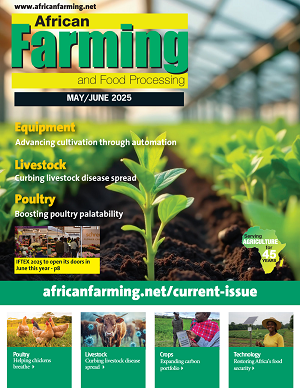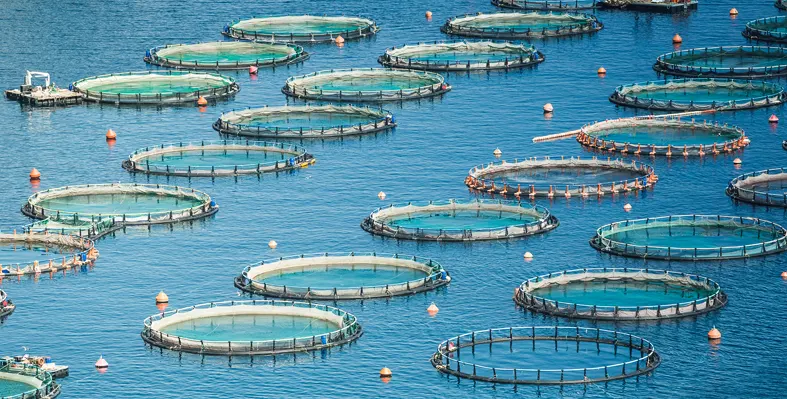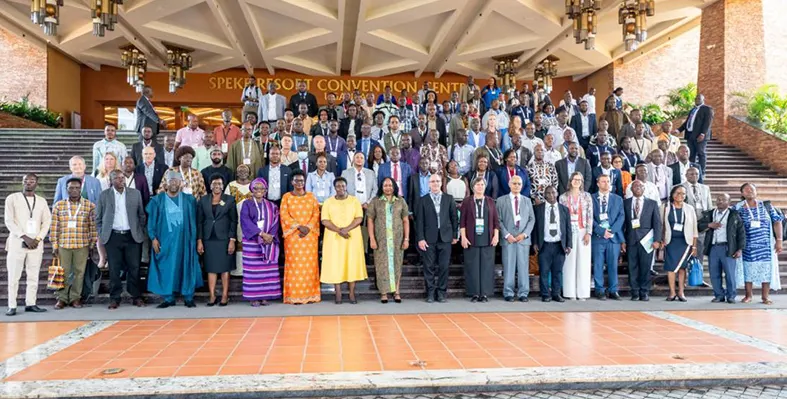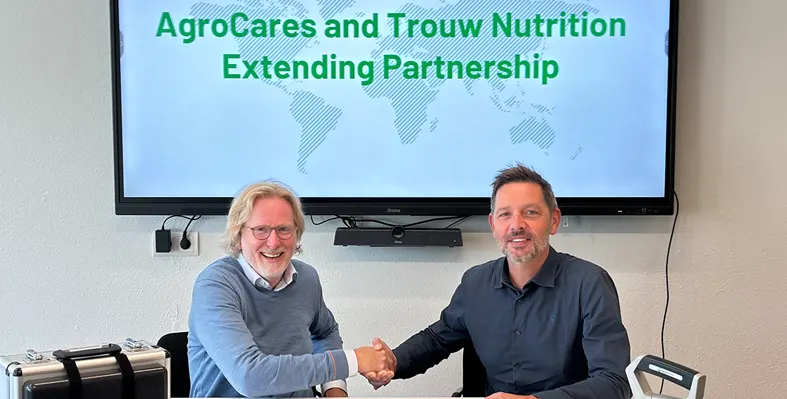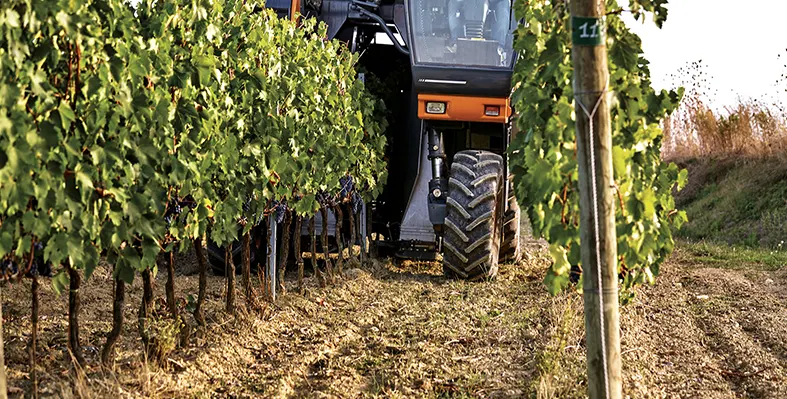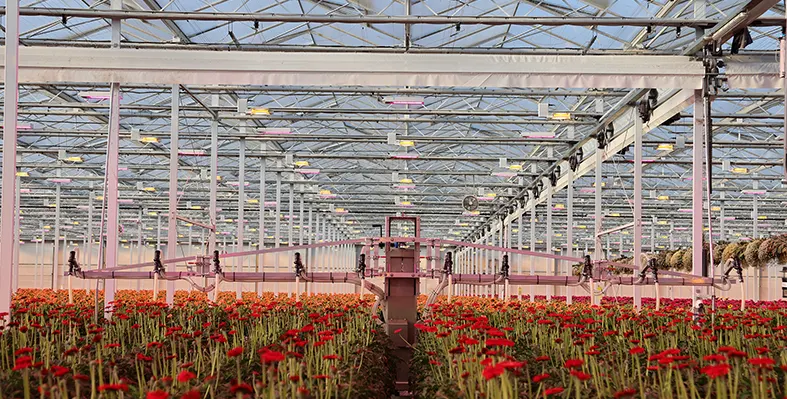In The Spotlight
The Future of Agrifood in Africa: Homegrown Innovations to Watch
African-led science and innovation are key to transforming agrifood systems across the continent
This was the central message of a special side event held during the Regional Policy Dialogue on Strengthening South-South & Triangular Cooperation (SSTC) in Africa, organised by the Food & Agriculture Organization (FAO) and hosted by the Government of Tanzania.
The Scaling Science & Innovation for Resilient Agrifood Systems: African Solutions through South-South and Triangular Cooperation event took place on the second day of the Dialogue. It served as a precursor to the Science & Innovation Forum at the FAO World Food Forum in October. The event gathered African experts, researchers, and policymakers to explore how homegrown innovations can transform African agrifood systems.
Opening the session, Abebe Haile-Gabriel, FAO Assistant Director-General and Regional Representative for Africa, emphasised the role of science and innovation in reshaping Africa's agrifood systems. He called for scaling successful practices through stronger partnerships and better policy alignment. "Africa stands today at a defining moment. Our agrifood systems face immense pressure from intensifying climate change, growing scarcity of land and water, frequent pest and disease outbreaks, and persistent post-harvest losses that undermine productivity and incomes. Yet, amidst these challenges, a new generation of African scientists, entrepreneurs, and innovators is reimagining agriculture, its business model, mechanisms of knowledge sharing, and scaling up technologies," he said.
Anthony Egeru, professor from the Regional Universities Forum for Capacity Building in Agriculture (RUFORUM) highlighted Africa's untapped potential in homegrown scientific knowledge and innovation. He stressed the need for stronger collaboration among African research institutions, as intra-African scientific cooperation remains limited.
Two expert panels followed, one focusing on scalable technologies benefiting smallholder farmers, and the other on how science-policy partnerships can foster innovation uptake. Among the innovators featured was Innovative Solutions for Decision Agriculture (ISDA), whose flagship product, the Virtual Agronomist, has increased yields by 60% among farmers using the AI-based tool.
FAO also showcased its work on plant protection with the eLocust3, a real-time data tool for monitoring locust outbreaks.
Peter Anaadumba, FAO South-South Cooperation Officer, stressed the need for strong policy frameworks, sustained financial support, and partnerships to create environments conducive to innovation. This event reinforced FAO's commitment to advancing African-led solutions and set the stage for further discussions at the Science and Innovation Forum in October.
The Future of Livestock Farming: AI and Women's Empowerment
In rural Kenya, a loan officer walks down a dirt road, heat rising from the savannah
He approaches a herd of cattle and, with a smartphone in hand, photographs one of the animals. An AI algorithm transforms livestock into a bankable asset hundreds of miles away. This is a glimpse of the quiet revolution led by Jenny Ambukiyenyi Onya, a young Congolese engineer.
Onya addresses a paradox affecting millions of women in rural Sub-Saharan Africa. The region is home to about 200 million smallholder farmers, a significant number of whom are women, accounting for up to 60% of the farmers. Yet, despite their vital role, these women remain largely invisible to the financial system. The Food & Agriculture Organization (FAO) reports that women receive only 10% of smallholder-targeted loans and just 1 percent of all agricultural loans. This exclusion leaves 70-115 million women without access to formal financing.
For these women, livestock is their savings. However, traditional methods of documenting animal ownership, like ear tags, are fragile and easily falsified, making it hard for banks to verify ownership. Onya's solution, Halisi Livestock, uses AI to recognise livestock, much like facial recognition technology. By analysing each animal's unique features, the AI creates a digital identity that can't be falsified.
"By combining the need for reliability in the field with in-house technical expertise, we saw an opportunity to apply AI to recognise assets like livestock," says Onya.
Her innovation provides a reliable, indisputable way for farmers to count and value their herds. This digital identity is proof of ownership, turning livestock into verifiable loan collateral. "For financial institutions, it's no longer a rough estimate but concrete and reliable data," Onya explains.
Through the "Enhancing Women Entrepreneurship for Africa" programme, Onya's company, Neotex.ai, has expanded its services across rural Kenya, registering over 1,250 head of livestock.
Onya's message is clear: "Dare to create. Even in sectors where you are not expected to. If I can build disruptive solutions from a cell phone and a herd of cows, you too can reinvent what no one has dared to imagine."

This initiative invites young people aged 12-18 globally to create robots that tackle food insecurity.
FAO and ITU robotics for good - youth challenge
At the opening of the AI for Good Summit in Geneva, the Food and Agriculture Organization (FAO) and the International Telecommunication Union (ITU) launched the Robotics for Good – Youth Challenge 2025–26
This initiative invites young people aged 12-18 globally to create robots that tackle food insecurity.
QU Dongyu, FAO Director-General emphasized the importance of empowering youth in the fight against hunger. "This challenge is not just about robotics," he said, "It is about empowering youth to become agents of change in the fight against hunger."
QU Dongyu also addressed the growing digital divide, which is hindering progress in low-income and rural areas. "The digital divide is becoming development divide," he stated. With 1 in 3 people worldwide still offline, especially in developing regions, AI's potential to reduce poverty and improve resilience remains out of reach for many.
FAO is working to bridge this gap by using AI to enhance global agrifood systems. Their digital tools help with precision agriculture, resource management, early warning systems, and market access. One of their successes includes AI-powered advisory services for smallholder farmers, which have reduced costs from US$30 to US$3 per farmer.
The FAO also uses AI for remote sensing and geospatial analysis to monitor drought, water stress, and crop health. Additionally, FAO is developing a knowledge bot and the world’s first agrifood-focused foundation AI model to provide context-specific solutions.
FAO is committed to ethical AI use, advocating for transparency, human dignity, and "do no harm." QU Dongyu concluded by urging partners to ensure AI is inclusive, transparent, and human-centered. "We must work together to address global challenges and accelerate progress in agrifood systems."
The AI for Good Summit, co-organized by the ITU and Swiss Government, gathers experts and stakeholders to explore AI's role in tackling global challenges.
IFTEX Nairobi
Venue:
Oshwal Centre
Nairobi, Kenya
Dates:
6-8 June 2023
Website:
Ticket sales open for Agritechnica 2025 in Hanover
Tickets are now on sale for Agritechnica 2025, the world’s largest trade fair for agricultural machinery, taking place from 9-15 November in Hanover, Germany
Organised by the DLG (German Agricultural Society), this year’s show is set to welcome around 430,000 visitors and 2,700 exhibitors from over 50 countries. Held under the theme “Touch Smart Efficiency”, Agritechnica 2025 introduces a new visitor concept: “7 Days – 7 Topics”, focusing on specific professional groups each day. With all 23 exhibition halls fully booked, interest is high—76% of surveyed potential visitors have already committed to attending.
This year also marks the debut of the digital farm centre – presented by FarmRobotix, showcasing innovations in robotics, automation, and artificial intelligence. Other highlights include DLG’s Expert Stages, startup showcases, and international networking events. The parallel systems and components exhibition will serve as a central B2B hub for suppliers in the agriculture and off-highway sectors.
New features for dealers include the international dealer centre, business matchmaking, and optional listings in the official event app.
Day tickets start at €29, with two-day and special event options also available. For the first time, tickets include free access to local public transport in the Hanover region.
Visitors can also take advantage of special trains and group travel packages from Germany and Switzerland.
Tickets and the full programme are available at the official website.
Tanzania’s fishing sector under threat from foreign fleets
Tanzania’s fishing industry has long supported families, kept children in school, and sustained coastal communities
But behind the scenes, the sector is under serious threat. The problem isn’t natural disasters or predators, but something worse—illegal foreign fishing fleets quietly stealing Tanzania’s marine resources.
According to the Tanzania Relief Initiative (TRI), many of these foreign vessels disguise themselves under local names and operate in Tanzania’s Exclusive Economic Zone (EEZ). Despite clear territorial boundaries, these fleets continue fishing without proper permits or accountability. The Global IUU (Illegal, Unreported, and Unregulated) Fishing Index has ranked Tanzania poorly, placing it among the worst-performing countries in recent years.
Edwin Mugambila, TRI CEO has called for urgent action. “Foreigners must pay taxes so the country benefits. Locals should be the ones earning a living from our waters,” he said at a recent press conference. He urged the government to introduce strict laws, involve local fishing associations in licensing, and implement modern tracking systems.
One major concern is the depletion of key fish species. Once abundant and valuable fish like Robusta are now nearly extinct in Tanzanian waters. Mugambila also raised alarm over the capture of banned species, including whales and sharks, with foreign crews taking only the fins and discarding the rest. Many foreign operators reportedly use Tanzanian proxies to appear legitimate while keeping full control.
Despite having over 1,400 km of coastline and more than 61,000 square kilometres of inland water, marine fishing contributes just 1.7 to 1.8 per cent to Tanzania’s GDP. Most fishing is done by small-scale operators using outdated tools. Deep-sea fishing, where the real value lies, is dominated by foreigners. Meanwhile, aquaculture remains underdeveloped, contributing only about 1 per cent to the economy.
Local fishers and entrepreneurs are also struggling to compete. Sarah Mwambu from the Tanzania Association of Marine Entrepreneurs (TAOME) said foreign buyers pay much higher prices for fish, leaving locals unable to match them. “We used to buy at 15,000/- per kilo. Now they offer 40,000/-. We can’t keep up,” she said.
The TRI and local groups are calling for tighter enforcement, better infrastructure, and greater support for Tanzanian fishers. With bold leadership and proper investment, Tanzania can take control of its waters and ensure the ocean’s wealth benefits its people first.
Cultivating change: urban agriculture in Namibia
As Namibia’s cities expand and climate pressures increase, urban agriculture is becoming a vital solution
It is more than just growing food – it offers a path to sustainable development, social fairness, and economic opportunity.
In Windhoek and other towns, communities are transforming empty plots, rooftops, and informal settlements into gardens, chicken coops, and small farms. These projects help address major challenges such as water shortages, food insecurity, and rapid urban growth.
Between 2011 and 2023, Windhoek’s population increased by over 65%, stretching infrastructure and services to the limit. More than 100,000 households now live in informal areas, where access to healthy, affordable food is often lacking. At the same time, climate change, rising food prices, and economic hardship have made it harder for families to feed themselves.
Urban farming helps by growing fresh and affordable food close to where it’s needed. It creates jobs for women and young people, and encourages better use of land and natural resources. It also supports several of the United Nations Sustainable Development Goals, including those related to hunger, health, gender equality, and climate action. By using ideas like waste recycling, nutrition education, and circular economy practices, communities grow stronger and gain valuable skills.
During the Covid-19 crisis, UNDP Namibia launched the Build Back Better Agriculture Project to respond to food shortages. Since then, it has grown into a wide-reaching programme that supports over 1,300 households and small businesses. It provides access to digital tools for planning crops, solar-powered transport for taking produce to market, water-saving systems, climate-smart farming, and skills training through vocational colleges.
With 70% of Namibians living under water stress, saving water is crucial. Local farmers are adopting precision irrigation, drought-tolerant crops, and modern mapping tools to grow more with less. Namibia can also take inspiration from countries like Mexico, where ancient farming techniques are combined with rainwater harvesting.
To grow further, urban agriculture will need support from government, business, and communities. With smart investment models, it can continue to improve lives and protect the environment. This green movement is about more than food – it’s about securing a better, fairer future.
South Africa's call for local renewable products: a new era
South Africa's Select Committee on Agriculture, Land Reform and Mineral Resources has called on the Department of Electricity and Energy to prioritise the local manufacturing of renewable energy products instead of relying on imports
This came after the department briefed the committee on the implementation of the Renewable Energy Sector Master Plan (RESMP).
During the presentation, the department outlined the key goals of the Master Plan, describing it as a driver for industrial development that aims to meet the growing demand for renewable energy, especially solar and wind power. A strong focus was placed on the importance of promoting inclusive economic growth by involving previously disadvantaged groups, with particular emphasis on youth and women, in the renewable energy sector.
The committee was briefed on several initiatives under the Master Plan. These included the localisation of renewable energy production, the rollout of skills development programmes, and the establishment of proper monitoring systems to track progress. Committee members stressed that the plan should not only address energy needs but also promote job creation and skills development.
Members raised concerns about the involvement of vulnerable communities, especially those in rural areas, asking the department how it plans to ensure these groups benefit from the Master Plan. The department responded by affirming its goal to ensure that at least 50% of job opportunities go to youth and marginalised communities. It also highlighted ongoing efforts to identify skills needs and expand internship and training programmes.
Regarding local manufacturing, the committee questioned the current focus on training people only for assembly work rather than producing renewable energy components like solar panels and charge controllers. They urged the department to move beyond just assembling and start developing the capacity to manufacture such products locally. In response, the department confirmed that steps are being taken to explore and expand local manufacturing opportunities.
The committee also flagged concerns about regulatory hurdles, particularly a moratorium from the Department of Defence, which has delayed the issuing of letters of no objection needed by Independent Power Producers (IPPs). They warned this could slow down progress in renewable energy projects. The department assured the committee it would work with the relevant departments to address these challenges and avoid any delays for IPPs.
Overall, the committee urged the department to speed up efforts to localise renewable energy production and ensure broad community participation.











